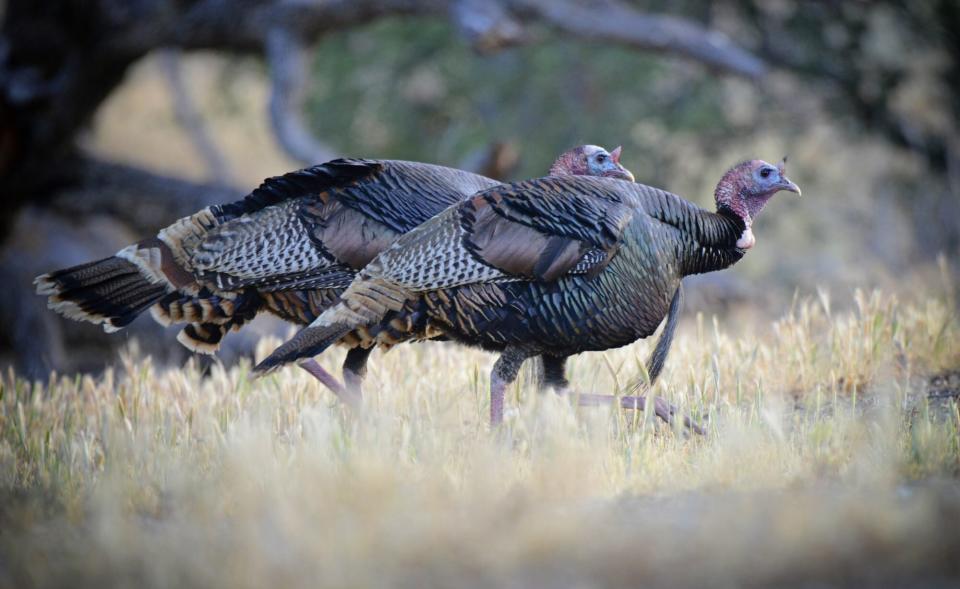Gobble Gobble! Experts Predict a Wild Turkey Boom Following Cicada Swarm
While most humans cringe at the thought of billions of cicadas emerging from the ground en masse, one animal in particular is preparing for the buffet of a lifetime: the wild turkey.
Cicadas, it turns out, are the ultimate turkey delicacy, leading experts to predict an increase in wild turkey populations following the arrival of Brood X.
For the hefty birds, it's a month-long smorgasbord 17 years in the making.

Lois_McCleary/Getty Images
"Turkey production goes up in a cicada year because both poults and hens benefit from the availability of the abundant invertebrate food, spend less time feeding, and have less exposure to predation," Steve Backs, a wild turkey biologist with the Indiana Department of Natural Resources, explained in a report from Purdue University. "Potential nest, egg, and poult predators are also pre-occupied or distracted by feeding on emerging cicada larva (alternative prey)."
In an interview with Outdoor News, Adam Butler, coordinator of the Mississippi Department of Wildlife, Fisheries and Parks' wild turkey program, expressed a similar opinion. He said that the correlation between wild turkeys and cicadas isn't so much about an additional food source for the birds as it is about distracting their predators.
"Several of the nest predators are omnivores, and they are going to eat whatever they can find," Butler said. "If a raccoon can fill his belly with cicadas, he's not going to worry about finding a turkey nest to eat. Cicadas serve as a buffer prey for the turkey nest predators."
This is good news for states like Kentucky, which has seen a decline in the wild turkey popular over the past few years.
"We think turkeys really struggle to reproduce," Kentucky Fish and Wildlife Turkey Biologist Zak Danks told WLKY. "They're important culturally, ecologically, and to hunters."
According to Danks, the last major cicada brood (in 2008) led to a record-setting year for turkey reproduction in the Bluegrass State. Wild turkey reproduction saw a 95% jump that year, leading to a record-setting harvest two years later.
"Cicadas are a great source of protein for turkeys and their predators," Danks told WLKY. "When the turkeys eat the cicadas, they don't have to move and search for food, so they're not exposed to the predators either—plus the predators eat the cicadas, too, so it's really a triple-win for turkeys."

